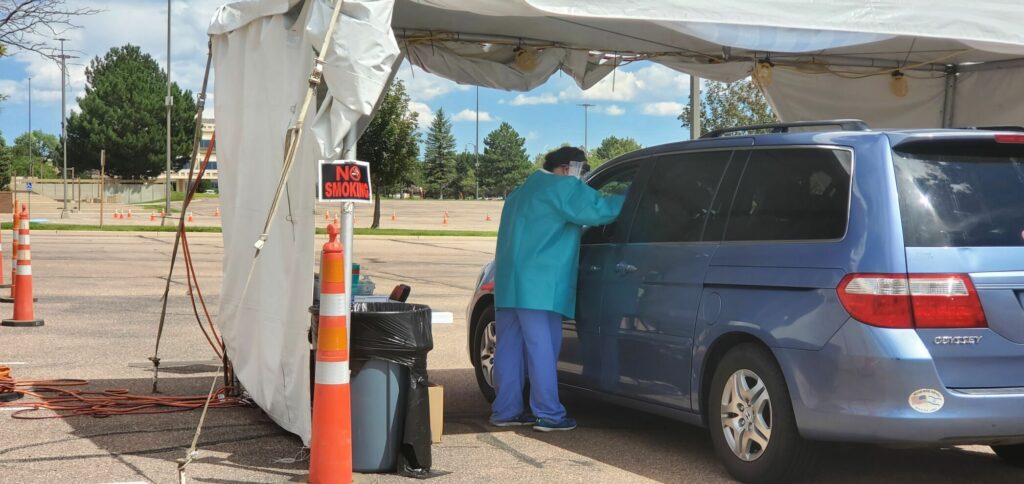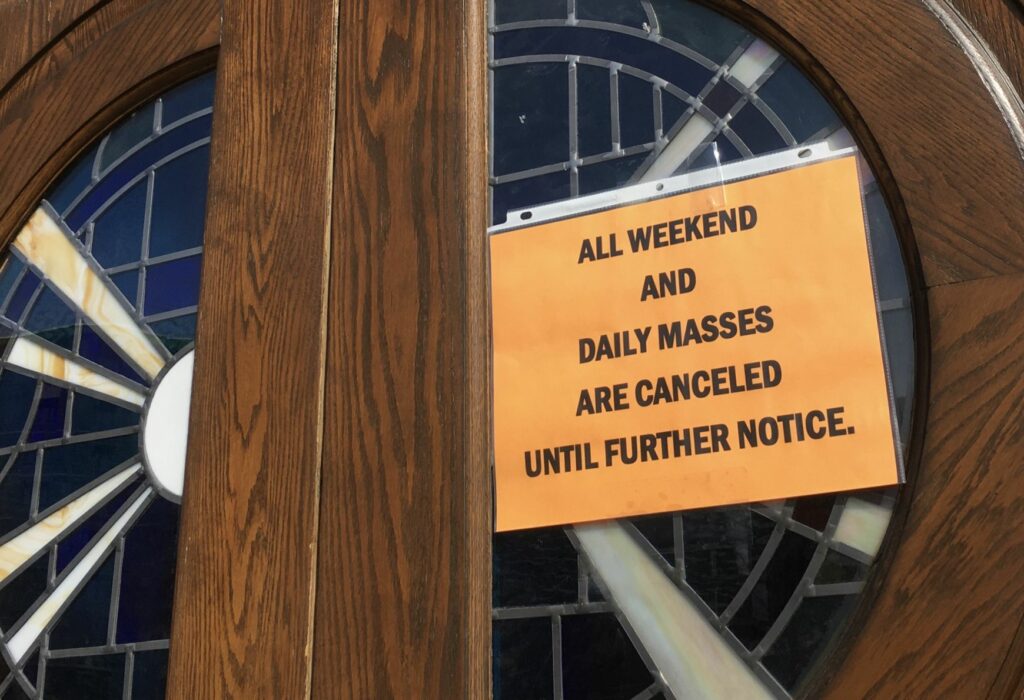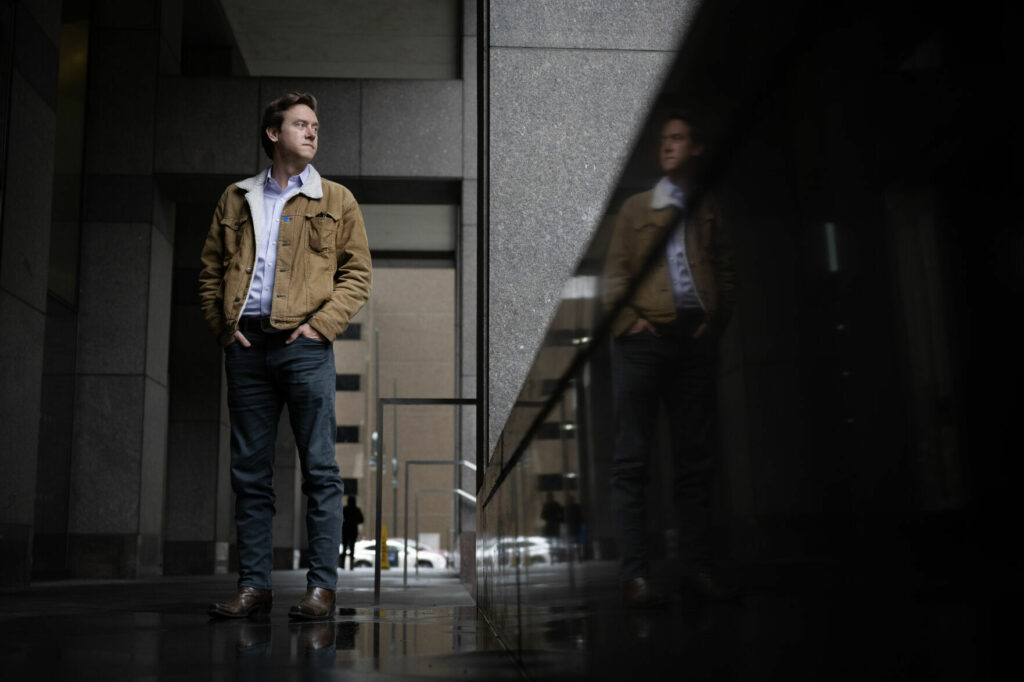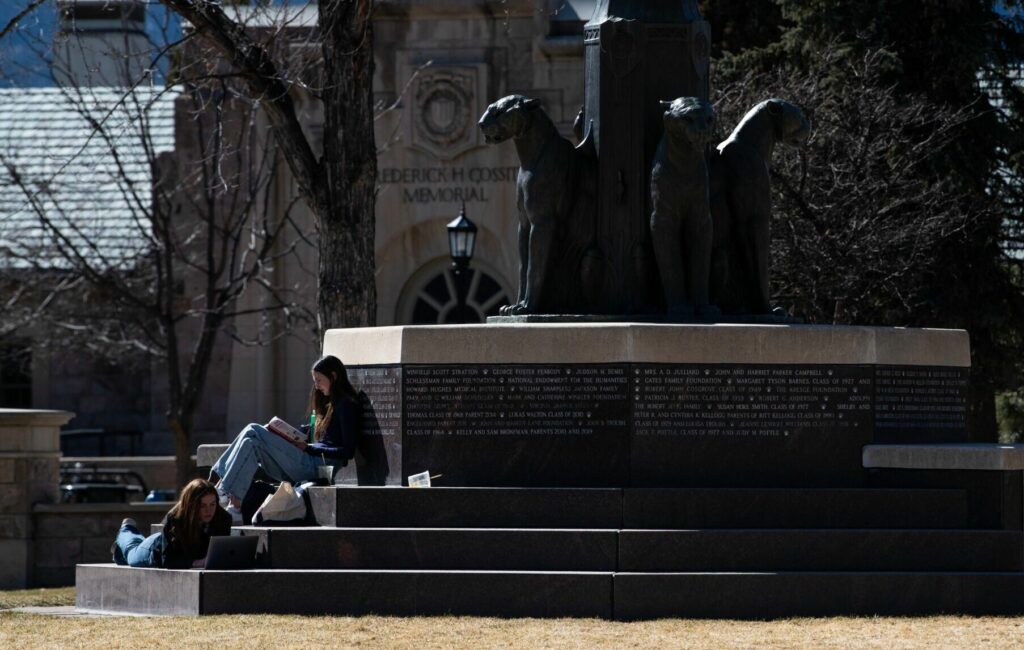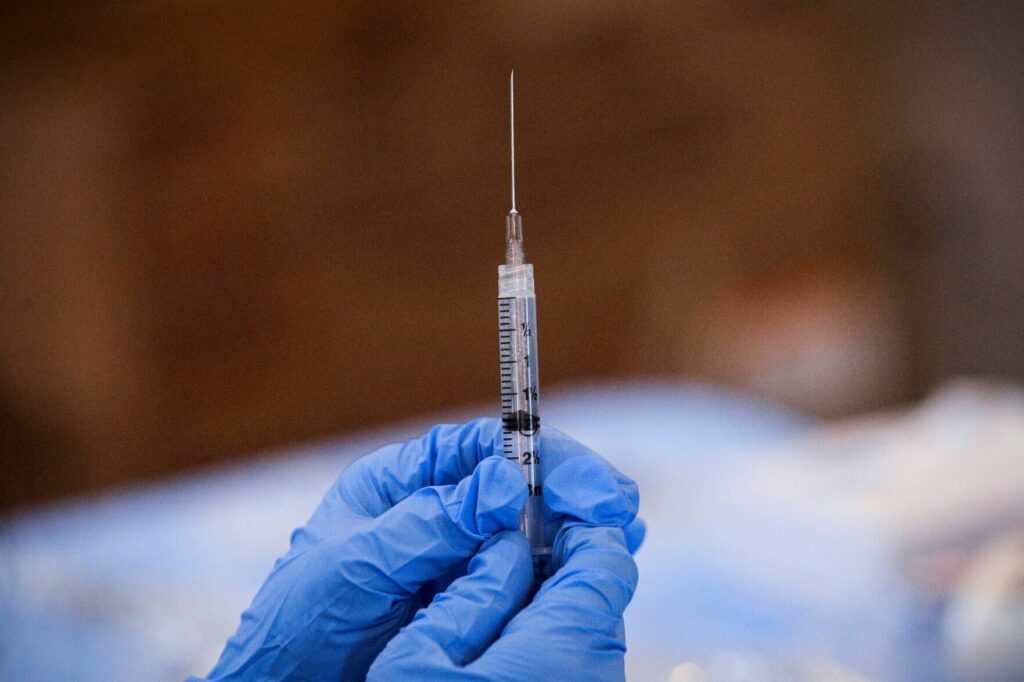Ideas around testing remain unclear as state relaxes stay-at-home directives
As various Colorado cities and counties decide to relax their stay-at-home orders this week, the central ideas around testing remain muddled.
In the early days of March, Colorado Gov. Jared Polis put a heavy emphasis on widespread testing to identify and contain the coronavirus.
At that time, the state had 15 confirmed cases of COVID-19. But last week, Polis’ take on testing as a silver bullet took a sharp turn as he harped at reporters grilling him on testing measures during a news conference. “You’re too obsessed with testing,” he told them.
Polis then suggested other ways to combat the virus as Coloradans begin to return to work under this week’s new “Safer At Home” order. They included hand washing, wearing a mask and protecting the most vulnerable people.
“While testing is an important tool … we’re working on it everyday, ” Polis said. “It’s not a panacea. It doesn’t solve this. We can’t just test and (contact) trace our way out of this.”
Though the state has increased its testing capacity two months into isolation, supplies and tests are not readily available. And though Polis announced the pending arrival of 150,000 tests, and 150,000 swab tests for mid-May, it’s not enough to combat a second surge of the virus, if the economy opens up too quickly.
“Tests are backlogged until September, all of them,” Colorado School of Public Health at Anschutz professor May Chu said.
Public health officials have compared two months of uncertainty over testing for the novel coronavirus to the wild, wild west. But some suggest that the blame for the lack of testing shouldn’t be placed directly on the states, and instead on the lack of a strategic plan from the federal government. Some believe this has been the most colossal misstep of the COVID-19 pandemic.
“It’s a huge failure,” said Daniel Goldberg, a public health ethicist and associate professor at the University of Colorado Anschutz Center for Bioethics and Humanities. “It’s not so much the capacity. It’s all of the different supplies you need. You need staff. Chemical reagents, swabs and people to do the tests. You have all of the states competing for the same stuff. The federal government has not done that.”
In a normal scientific world, Chu says, it would take five to 10 years to develop an accurate coronavirus lab test, “…and here we are rolling something out for COVID-19 in four months.” She added, “We have 184 countries, all needing tests, and we’ve never done this before.”
Echoed Colorado Department of Health and Environment’s Innovation Response Team director Sarah Tuneberg, “With every state and every country needing this all at the same time, there’s incredible competition and it’s very difficult.”
Shoe-leather epidemiology
State public health officials are currently training people for a new front-line effort to contain the virus in a method called “contact tracing,” which involves hiring people to find anyone who has been exposed to a sick person.
Tuneberg said the CDPHE is developing what she calls “a holistic three-tiered approach.” The first phase is happening now, bringing epidemiologists to plan it out; the second involves bringing in “COVID Navigators” who will help people to stay at home and navigate their quarantines. The third phase will bring in technology, for example, the team is supervising 250 volunteer software engineers to see how technology and data can solve re-infection problems.
Goldberg calls this method “public health surveillance.”
He explains, “It’s shoe-leather epidemiology. You identify the neighborhood hot spots and you ask people, ‘Do you have the sniffles? Come get tested. Does someone across the street have sniffles? Come get tested.’ The labor is immense.”
Goldberg says this robust tracking infrastructure gives epidemiologists a sense of where COVID-19 is circulating and offers a chance to get ahead of the virus.
“It’s not our world. It’s the virus’ world,” he said.
Antibody testing
There are two coronavirus-related tests in demand. One is a diagnostic test, an uncomfortable swab up the nose, which determines if a person is infected with the virus. The second is a test Chu calls the “Get Out Of Jail Free” card: the test that can determine whether a previously infected person now has the antibodies to fight the virus.
Those tests are in great demand, as one of the biggest questions scientists have about COVID-19 is whether or not getting it once makes a person immune. Friday, The World Health Organization, in a statement, cautioned that this has not been scientifically proven: “There is currently no evidence that people who have recovered from COVID-19 and have antibodies are protected from a second infection.”
Perhaps it’s best to look to South Korea’s experience.
According to the latest information from the Korean Centers for Disease Control, 2% of the people who had the novel coronavirus are getting it again.
Importantly, Korean epidemiologists still don’t know if these recurrences are a new infection, or if the virus, already in the patient’s system, has reactivated.
“We do not have a clear answer,” reiterates Chu. “More research is needed to learn about the disease and (the) individuals’ response. The presence of antibody tells us that a person was exposed but we do not have enough information as to whether that antibody will protect from another infection,” she said in a text to Colorado Politics.
WHO’s warning comes just days after Chile announced that it is going to start a program that will provide immunity cards to travelers, similar to a passport, showing that a person has had an antibody test. The concept assumes that the person has recovered and is free and clear of contracting it again.
The Food and Drug Administration has only granted emergency use for four antibody tests, but with so many people clamoring for them, dozens of tests with varying rates of reliability are already on the market. With such a test being the determining factor in whether people get back to work again, House Democrats are now looking into whether the FDA should be more vigilant as it enforces them.
Last week, National Jewish Health announced it had secured a limited amount of these antibody tests from the FDA. Within minutes, those tests were sold out at $94 apiece, and Friday it administered six tests per hour in its parking lot until they were gone. “It’s stunning,” said National Jewish Spokesman William Allstetter. “We’ve been selling out extremely quickly. We have to do a blood draw and we can only do so many at a time.”
Appointments for this week are sold out through Thursday, but NJH anticipates opening more appointments in the coming days.
Even grocery stores are getting into the testing business. Sunday, King Soopers announced a partnership with the Colorado State Emergency Operations Center to provide free drive-through testing Tuesday and Wednesday from 10 a.m. to 4 p.m. The CDC tests are limited to 250 cars a day. In order to be eligible, registrants must have symptoms of the virus, such as shortness of breath, chills and fever, according to CDC guidelines.
Ball of confusion
This week, the uncertainly of life-during-COVID19 is getting even more confusing. Polis’ Safer At Home order is not being followed systematically as cities and counties launch their own back-to-work strategies.
Denver Mayor Michael Hancock balked from Polis’ mandate, opting instead to remain under “Stay At Home” status until May 8. Jefferson, Boulder, Arapahoe and Adams counties are following the May 8 recommendation. Douglas County will follow the state’s Safer at Home guidance starting this week.
One county, Weld, opted to open all of its businesses, including restaurants and retail outlets. The decision created a national stir on Friday. Still, Weld County commissioners stressed that social distancing should be observed and businesses sanitized.
The move prompted an angry response by Polis. “Weld has had a very high number of cases – it’s a hot spot – and this is not the time to further ease off of restrictions, even beyond what the state is trying to allow,” Polis said on a conference call with reporters. “We want to work with the commissioners – we don’t want to participate in political games.”
Saturday, the CDPHE and State Emergency Operations Center started providing target testing to various areas for any Weld County resident showing symptoms. Weld County currently has more than 1,400 cases and 79 deaths from COVID-19.
In an example of the incohesiveness between city and county entities, Greeley in Weld County announced it would keep its city facilities closed until June 2, and suggested that businesses do the same. In a statement, Greeley Mayor John Gates said:
“Based on the medical and scientific data, and the high number of cases in Weld County, the City of Greeley strongly supports following the ‘Safer at Home’ philosophy. This approach protects lives, flattens the curve, and is a step in the right direction for getting our community back to a fully operational economy.”
Baby steps
“This is going to be baby steps,” Hancock told reporters Friday. His goal is to eventually get 1,000 Denver residents tested per day. As to the businesses that are struggling, he admitted the hardship. “There will be casualties. Why? To save lives. Lives are first.”
Bob McDonald, executive director of the Denver Department of Public Health and Environment, assured reporters that the city’s health system is set up to begin more testing to get to the 1,000-per-day mark. “It’s the needs of public health vs. people being able to earn a living. We’re not there yet,” he said.
Said Hancock, “We need to box it in and make sure it’s OUR punk, and that we’re not ITS punk anymore.”


